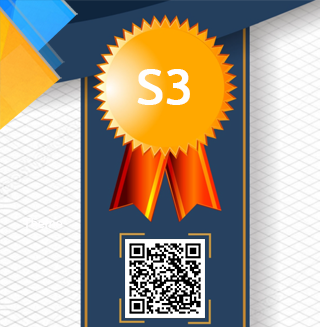Health Technology Assessment of Medical Device: Scoping Review
DOI:
https://doi.org/10.25311/keskom.Vol8.Iss3.1332Keywords:
HTA, medical devices, criteriaAbstract
Prior to the implementation of health technology, the proposed system or device needs to be assessed in various aspects. This assessment is known as the Health Technology Assessment (HTA). HTA is a systematic evaluation on effect, and/or impact of health technology which aims to provide information to policy makers regarding health technology. This information is needed to minimize costs and prevent the adoption of questionable technologies. The health technology in question can be in the form of drugs, therapy, medical procedures, and medical devices. The HTA process and methodology for medicines has been widely used, while for medical devices it is still scarce. From several literature reviews, the use of HTA criteria is different even though the nature of the object under reviews was in the same category of medical device. Hence, we conducted a study to determine what criteria that are often used in HTA for medical devices. The method in this research was a scoping review on previous HTA publications (n=392) available on PubMed and ScienceDirect databases. Based on the results of a literature search using PRISMA, there were only 7 articles according to the inclusion criteria related to HTA for medical devices with different subjects, namely: medical devices and hospital based HTA. Conclusion from these findings, it can be learned that the criteria often used in HTA for medical devices were namely economy, safety, effectiveness, and organization.
Downloads
References
Alami, H., Lehoux, P., Auclair, Y., & De, M. (2020). Artificial Intelligence and Health Technology Assessment : Anticipating a New Level of Complexity. 22, 1–12. https://doi.org/10.2196/17707
Alfadesta, Aprilianto, Danny Handoko, F.S. Rifano, & Isa, S. M. (2011). Penerapan M-Health Untuk Diagnostics and Treatment Support Pada Negara Berkembang: Studi Kasus Indonesia. 62–68.
Arksey, H., Malley, L. O., Arksey, H., & Malley, L. O. (2007). Scoping studies : towards a methodological framework Scoping Studies : Towards a Methodological Framework. December 2014, 37–41. https://doi.org/10.1080/1364557032000119616
Artun, E. D., & Şahin, B. (2021). Evaluation of the Availability of Hospital-Based Health Technology Assessment in Public and Private Hospitals in Turkey: Ankara Province Sample. Value in Health Regional Issues, 25, 165–171. https://doi.org/10.1016/j.vhri.2021.03.004
Baghbanian, A., Merlin, T., Carter, D., & Wang, S. (2020). Methods for the health technology assessment of complex interventions: A protocol for a scoping review. BMJ Open, 10(11), 1–11. https://doi.org/10.1136/bmjopen-2020-039263
Blüher, M., Saunders, S. J., Mittard, V., Torrejon Torres, R., Davis, J. A., & Saunders, R. (2019). Critical Review of European Health-Economic Guidelines for the Health Technology Assessment of Medical Devices. Frontiers in Medicine, 6(November), 1–12. https://doi.org/10.3389/fmed.2019.00278
Busse, R., Orvain, J., Velasco, M., Perleth, M., Drummond, M., G¨rtner, F., Jørgensen, T., Jovell, A., Malone, J., R¨ther, A., & Wild, C. (2002). Best Practice in Undertaking and Reporting Health Technology Assessments. International Journal of Technology Assessment in Health Care, 18(2), 361–422. https://doi.org/10.1017/s0266462302000284
EUnetHTA Joint Action. (2016). HTA Core Model Handbook. In EUnetHTA Joint Action 2. https://www.eunethta.eu/wp-content/uploads/2018/03/HTACoreModel3.0-1.pdf%0Ahttp://www.corehta.info
Ferguson, M. (2014). Medical devices are different to pharmaceuticals in the Health Technology Assessment process. Journal of Comparative Effectiveness Research, 3(3), 217–219. https://doi.org/10.2217/cer.14.17
Haverinen, J., Keränen, N., Falkenbach, P., Maijala, A., Kolehmainen, T., & Reponen, J. (2019). Digi-HTA: Health technology assessment framework for digital healthcare services. Finnish Journal of EHealth and EWelfare, 11(4), 326–341. https://doi.org/10.23996/fjhw.82538
Hill, S., Velazquez, A., Tay-Teo, K., & Metherell, A. (2015). 2015 Global Survey on Health Technology Assessment by National Authorities. In Who. www.who.int%0Awww.who.int/about/licens-ing/copyright_form/en/index.html
Hummel, J. M., Borsci, S., & Fico, G. (2020). Multicriteria decision aiding for early health technology assessment of medical devices. In Clinical Engineering Handbook (Second Edi). Elsevier Inc. https://doi.org/10.1016/b978-0-12-813467-2.00114-0
Kementerian Kesehatan Republik Indonesia. (2017). Buku Panduan Penilaian Teknologi Kesehatan. Jakarta: Kementerian Kesehatan Republik Indonesia, 118–120.
Kristensen, F. B. (2005). Introduction to miniHTA.
Magrabi, F., Ong, M. S., Runciman, W., & Coiera, E. (2012). Using FDA reports to inform a classification for health information technology safety problems. Journal of the American Medical Informatics Association, 19(1), 45–53. https://doi.org/10.1136/amiajnl-2011-000369
Martelli, N., Hansen, P., van den Brink, H., Boudard, A., Cordonnier, A. L., Devaux, C., Pineau, J., Prognon, P., & Borget, I. (2016). Combining multi-criteria decision analysis and mini-health technology assessment: A funding decision-support tool for medical devices in a university hospital setting. Journal of Biomedical Informatics, 59, 201–208. https://doi.org/10.1016/J.JBI.2015.12.002
Moher, D., Liberati, A., Tetzlaff, J., & Altman, D. G. (2009). Guidelines and Guidance Preferred Reporting Items for Systematic Reviews and Meta-Analyses: The PRISMA Statement. https://doi.org/10.1371/journal.pmed.1000097
Moore, F., Grunch, B. H., Miller, L. E., & Musacchio, M. J. (2021). Towards a More Simplified Approach for Evaluating Strength of Evidence in Health Technology Assessments. Cureus, 13(7). https://doi.org/10.7759/cureus.16528
Mueller, D., Pattinson, R. C., Hlongwane, T. M., Busse, R., & Panteli, D. (2021). Portable continuous wave Doppler ultrasound for primary healthcare in South Africa: can the EUnetHTA Core Model guide evaluation before technology adoption? Cost Effectiveness and Resource Allocation, 19(1), 1–16. https://doi.org/10.1186/s12962-021-00261-z
Olberg, B., Fuchs, S., Panteli, D., Perleth, M., & Busse, R. (2017). Scientific Evidence in Health Technology Assessment Reports: An In-Depth Analysis of European Assessments on High-Risk Medical Devices. Value in Health, 20(10), 1420–1426. https://doi.org/10.1016/j.jval.2017.05.011
Rosina, J., Rogalewicz, V., Ivlev, I., Juřičková, I., Donin, G., Jantosová, N., Vacek, J., Otawová, R., & Kneppo, P. (2014). Health technology assessment for medical devices. Lekar a Technika, 44(3), 23–36.
Sampietro-Colom L, L. K., Cicchetti A, K. K., Pasternack I, F. B., Rosenmöller M, W. C., Kahveci R, W. J., & Kiivet RA, et al. (2015). THE AdHopHTA HANDBOOK. http://www.adhophta.eu/sites/files/adhophta/media/adhophta_handbook_website.pdf
Tarricone, R., Amatucci, F., Armeni, P., Banks, H., Borsoi, L., Callea, G., Ciani, O., Costa, F., Federici, C., Torbica, A., & Marletta, M. (2021). Establishing a national HTA program for medical devices in Italy: Overhauling a fragmented system to ensure value and equal access to new medical technologies. Health Policy, 125(5), 602–608. https://doi.org/10.1016/j.healthpol.2021.03.003
WHO. (2011). Health Technology Assessment of Medical Devices. In Regulation.
WHO. (2015). WHO | Why use HTA? Who. https://www.who.int/health-technology-assessment/about/WHY/en/
Downloads
Submitted
Accepted
Published
How to Cite
Issue
Section
License
Copyright (c) 2023 Jurnal Kesehatan Komunitas

This work is licensed under a Creative Commons Attribution-NonCommercial-ShareAlike 4.0 International License.




























